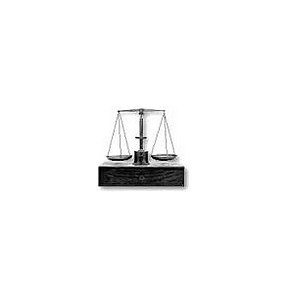Best Creditor Lawyers in Estonia
Share your needs with us, get contacted by law firms.
Free. Takes 2 min.
Or refine your search by selecting a city:
List of the best lawyers in Estonia
About Creditor Law in Estonia
In Estonia, creditor law involves regulations and practices concerning the rights and duties of creditors and debtors. This area of law is pivotal for managing disputes regarding debts, enforcing claims, and ensuring that the credit market runs smoothly. Estonian creditor law includes various laws, such as contract law, bankruptcy law, and enforcement procedures, all of which delineate the processes and limitations associated with the recovery of debts.
Why You May Need a Lawyer
There are several common situations where individuals or businesses may need the assistance of a lawyer specializing in creditor law in Estonia:
- Debt Recovery: When a debtor fails to meet their financial obligations, a lawyer can help initiate legal proceedings to recover outstanding debts.
- Contractual Disputes: Legal counsel can assist in resolving issues arising from breaches of contract or disputes over the terms of credit agreements.
- Bankruptcy Proceedings: If a debtor declares bankruptcy, creditors might need legal representation to protect their rights during bankruptcy proceedings.
- Negotiation and Settlement: A lawyer can facilitate negotiations or settlements between creditors and debtors to reach amicable resolutions.
- Enforcement of Claims: Lawyers can guide creditors through the legal processes necessary to enforce court judgments and ensure debt recovery.
Local Laws Overview
Several key aspects of local laws pertain to creditor issues in Estonia:
- Obligations and Contracts: The Law of Obligations Act stipulates the general principles of contract law, crucial for understanding debtor-creditor relationships.
- Enforcement Procedure Act: This act outlines the procedures for the enforcement of claims, detailing processes such as seizure of property or garnishment of wages.
- Bankruptcy Act: The act governs the processes related to insolvency, including creditor claims and the distribution of an insolvent debtor's assets.
- Consumer Protection: The Consumer Protection Act provides regulations that safeguard consumers, impacting how credit terms must be presented and handled.
Frequently Asked Questions
What is a debtor's primary obligation?
A debtor's primary obligation is to fulfill the payment terms agreed upon in a contract. Failure to do so may result in legal action initiated by the creditor.
Can a creditor charge interest on overdue payments?
Yes, creditors may charge interest on overdue payments, provided the rate is specified in the contract and complies with Estonian laws.
What actions can a creditor take if a debtor defaults?
If a debtor defaults, a creditor can initiate legal proceedings, such as sending payment reminders, filing lawsuits, or requesting enforcement actions.
How does the court handle bankruptcy proceedings for creditors?
During bankruptcy proceedings, creditors must submit their claims in a timely manner to participate in any distribution of the debtor's assets.
What role does a notary play in the creditor process?
A notary can authenticate documents and agreements, making them enforceable without requiring a court judgment, thus expediting the enforcement process.
When is debt forgiveness possible?
Debt forgiveness can occur through negotiation and settlement, often in cases where a debtor is unable to fulfill their obligations despite efforts to do so.
Are there any protections for debtors against aggressive debt collection?
Yes, Estonian law prohibits aggressive debt collection practices, and debtors are protected by consumer rights legislation.
Is mediation an option for creditor-debtor disputes?
Yes, mediation can be a viable alternative to litigation for resolving creditor-debtor disputes outside of court, often resulting in faster and mutually acceptable outcomes.
What should I do if foreign creditors pursue claims in Estonia?
Engage a local legal expert familiar with cross-border enforcement to navigate the complexities of international debt recovery in accordance with Estonian law.
How can I prevent future debt disputes?
Implementing stringent credit risk assessments, clear contractual documentation, and effective credit control measures can help prevent future debt disputes.
Additional Resources
For those seeking further information or assistance, the following resources may prove helpful:
- The Estonian Ministry of Justice provides guidance on legal rights and obligations.
- The Estonian Bar Association offers access to a directory of legal professionals specialized in creditor law.
- The Financial Supervision Authority provides guidance on consumer protection rights.
Next Steps
If you need legal assistance in the field of creditor law in Estonia, consider the following steps:
- Conduct initial research to understand your specific legal issue.
- Compile relevant documentation, such as contracts, correspondence, and payment records.
- Consult with a legal professional specializing in creditor law for personalized advice and representation.
- Consider alternatives such as negotiation or mediation if applicable, before pursuing litigation.
Lawzana helps you find the best lawyers and law firms in Estonia through a curated and pre-screened list of qualified legal professionals. Our platform offers rankings and detailed profiles of attorneys and law firms, allowing you to compare based on practice areas, including Creditor, experience, and client feedback.
Each profile includes a description of the firm's areas of practice, client reviews, team members and partners, year of establishment, spoken languages, office locations, contact information, social media presence, and any published articles or resources. Most firms on our platform speak English and are experienced in both local and international legal matters.
Get a quote from top-rated law firms in Estonia — quickly, securely, and without unnecessary hassle.
Disclaimer:
The information provided on this page is for general informational purposes only and does not constitute legal advice. While we strive to ensure the accuracy and relevance of the content, legal information may change over time, and interpretations of the law can vary. You should always consult with a qualified legal professional for advice specific to your situation.
We disclaim all liability for actions taken or not taken based on the content of this page. If you believe any information is incorrect or outdated, please contact us, and we will review and update it where appropriate.
Browse creditor law firms by city in Estonia
Refine your search by selecting a city.













